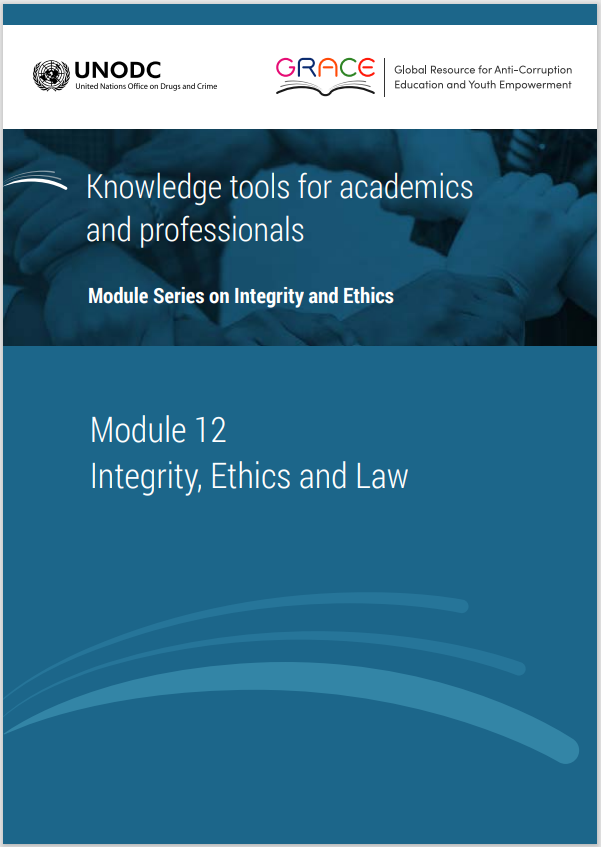This module is a resource for lecturers
Guidelines to develop a stand-alone course
This Module provides an outline for a three-hour class, but there is potential to develop its topics further into a stand-alone course. The scope and structure of such a course will be determined by the specific needs of each context, but a possible structure is presented here as a suggestion.
|
Session |
Topic |
Brief description |
|
1 |
Introduction to integrity, ethics and law |
Introduction to concepts of integrity, ethics and law - Different kinds of reasons for upholding the concepts and for not upholding them |
|
2 |
Ethics overview |
Ethical theories and their overlap with religious beliefs: e.g. Kantian ethics, utilitarianism, virtue ethics, Confucianism, Islam |
|
3 |
Applied ethics |
Define applied ethics and look at how many groups of people and professionals have systems of ethics - How are these systems similar, or different? - Types of ethical rules: punitive and aspirational |
|
4 |
Integrity |
Fuller consideration of integrity: definition and sources - Discussion of how integrity differs from ethics |
|
5 |
Law |
Fuller consideration of law: definition and sources - Discussion of how integrity and ethics are similar to and different from law |
|
6 |
Case studies of integrity, ethics and law |
Case studies provide examples of the different ways in which integrity, ethics and law interact: - Provide a case study of ethical behaviour which is illegal but unlikely to be detected |
|
7 |
Case studies of integrity, ethics and law |
Case studies provide examples of the different ways in which integrity, ethics and law interact: - Provide a case study of behaviour which is legal but unethical or lacks integrity |
|
8 |
Case studies of integrity, ethics and law |
Case studies provide examples of the different ways in which integrity, ethics and law interact: - Provide a case study of illegal behaviour which is unethical or lacks integrity, but which is subject to powerful forces that are hard to resist (poverty, protection of family, the potential to make enormous amounts of money, etc.) |
|
9 |
Student presentations of integrity, ethics and law |
Students present their own studies of real persons, either public figures or persons known to them, and then either analyse the challenges posed by integrity, ethics and law themselves, or, if doable, lead the class in discussion of the issues and resolutions. - Students can interview persons known to them, but it is necessary to address issues of privacy and confidentiality with students before they embark on the assignment, and talk with students about whether the person interviewed wants to remain anonymous or not. - This kind of assignment also provides an opportunity to discuss integrity, ethics and law in the context of school and assignments. |
|
10 |
Student presentations of integrity, ethics and law |
Students present their own studies of real persons, either public figures or persons known to them, and then either analyse the challenges posed by integrity, ethics and law themselves, or, if doable, lead the class in discussion of the issues and resolutions. - Students can interview persons known to them, but it is necessary to address issues of privacy and confidentiality with students before they embark on the assignment and talk with students about whether the person interviewed wants to remain anonymous or not. - This kind of assignment also provides an opportunity to discuss integrity, ethics and law in school and in research. - Final discussion: what kinds of problems with integrity, ethics and law do students think they might have in the future? What are some ways to handle them? |
